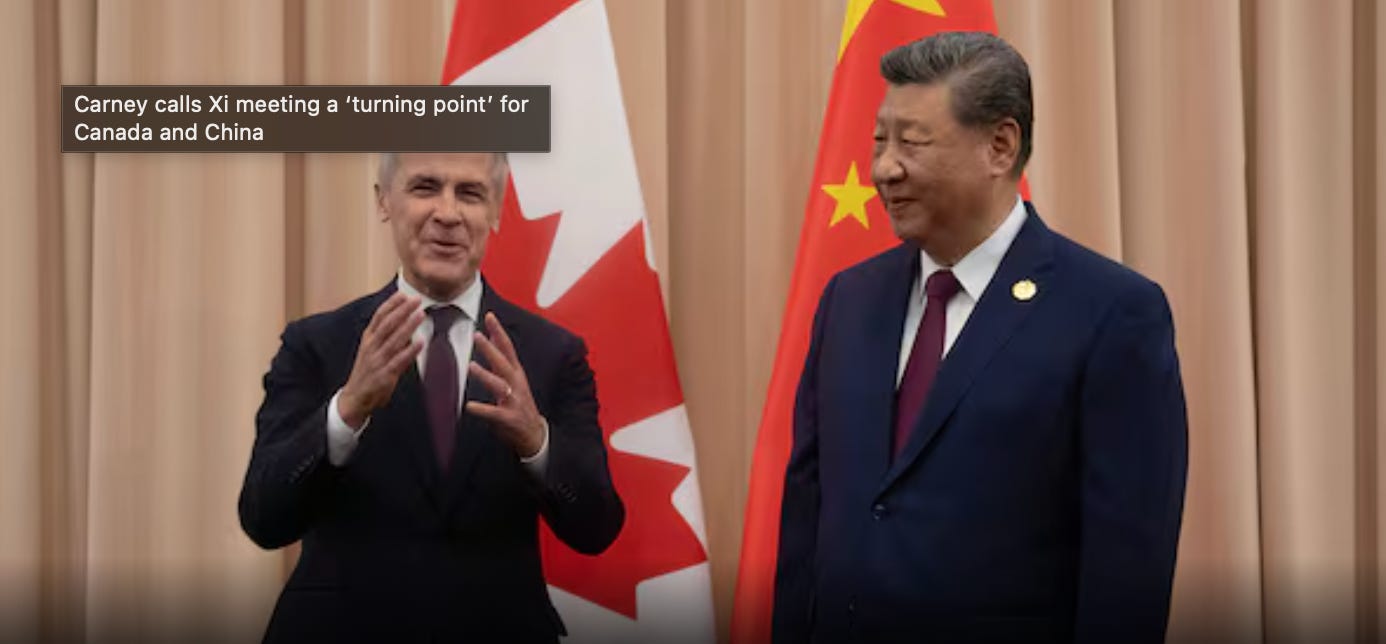“Overrun”: Washington’s Grim Verdict on Canada’s CCP Infiltration Crisis
In Under Assault, expert Dennis Molinaro concludes that U.S. officials see Canada as struggling to counter Beijing’s expanding operations — a failure that increasingly threatens American security.
OTTAWA — In his striking conclusion to Under Assault, former national-security analyst Dennis Molinaro reveals that U.S. government sources have privately described Canada as “overrun” with Chinese influence — the ultimate consequence of a fifty-year pattern, begun under Pierre Trudeau and seemingly accelerated by his son, of engaging the Chinese Communist Party on its own terms and to the detriment of Canadian sovereignty.
It’s a finding that resonates sharply as Justin Trudeau’s successor, Prime Minister Mark Carney renews deeper ties with Beijing amid Washington’s intensifying, security-driven tariff pressure on its allies.
Molinaro lays out his case, arguing that a double standard has taken root in Canada’s approach to China. He contrasts Justin Trudeau and the RCMP’s aggressive pursuit of Indian officials and linked organized-crime proxies with their persistent failure to confront comparable — and far greater — Chinese threats. This pattern runs through Trudeau’s testimony denying repeated intelligence findings on Beijing’s interference within his own party and government institutions, and through multiple examples across federal departments. Among them: Commissioner Marie-Josée Hogue’s conclusions on Chinese interference, which appeared to downplay or miscast stronger findings from an earlier NSICOP review, and the actions of Trudeau’s national-security adviser, who allegedly blocked or sanitized a report that “named names” of parliamentarians targeted by China — a case that echoes Britain’s unfolding Chinese-spy scandal.
In interviews with officials tied to congressional and Senate committees on the Chinese Communist Party, Molinaro uncovered a stark consensus in Washington’s intelligence community — one that, he notes, had solidified long before Donald Trump’s return to office. Ottawa, they said, is not merely slow to act on Beijing’s interference but increasingly viewed as a compromised link in the Western security chain — and therefore a liability to American interests.
“I asked them for an honest assessment of how the U.S. interprets its northern neighbour when it comes to PRC foreign interference,” Molinaro explains. “It’s worth mentioning that these comments were made before Trump’s election win and during Biden’s time in office.”
“I don’t want to say ‘joke,’” one official told him, “but the saying you get a lot of times here is, ‘Look to Canada if you want to see what could happen here.’” Another was even more blunt: “Canada is … overrun. I know some of the people I work with in the malign-influence space say ‘Canada is trying to stay afloat.’” Molinaro writes that these officials seemed to hold back some of what they knew, but when he asked why Canada “is trying to stay afloat,” the careful answer pointed to “certain perceptions within the Canadian government about China and Chinese influence.”
Molinaro stresses that this breach in American confidence is not academic. “The uncomfortable truth,” he concludes, “is that the threat of the PRC to Canada has been and remains a direct threat to the national security of the United States.” With both nations sharing intelligence pipelines, defence infrastructure, and deeply integrated economies, Ottawa’s paralysis magnifies Washington’s exposure. “The more Canada dithers on acting against PRC operations,” he notes, “the larger the risk to the U.S.”
That dithering, Molinaro argues, has become institutionalized.
“The Trudeau Liberals were perpetuating a mindset and government culture that appeared to predate them. While my interviews were convincing, I could never verify if they were true or not, but the totality of my research, especially the testimony of government officials at the inquiry, suggested that Canada had been determined to historically see China one way, and it was the wrong way. The PRC appeared to be a potential partner on the Asian continent, a place where Canadians could do business, a trading partner that could help Canada be less reliant on the U.S., and a country that would eventually be seduced by our freedoms to adopt our democratic values. Security concerns never seemed to be able to disrupt these views, which meant that no amount of intelligence would change people’s minds.”
In one striking case centered on Trudeau’s own testimony, Molinaro exposes a troubling conflict within law enforcement. At the Foreign Interference Inquiry, RCMP Deputy Commissioner Mark Flynn acknowledged that his division had been informed of a PRC-linked money-laundering network tied to organized crime and foreign-influence activity — and chose not to investigate. The reason, Flynn admitted, was that “multiple backup networks” could simply replace any network shut down. Molinaro interprets this as a revealing window into Canada’s unwillingness to confront Chinese transnational crime, even as the same force pursued Indian networks with visible urgency under Trudeau’s political pressure. Bizarrely, on the other hand, Molinaro writes that Flynn had essentially conceded “there’s so much money laundering going on, shutting down the activity of Chinese organized crime wouldn’t make a significant difference.”
Molinaro notes that Trudeau’s own appearance before Justice Marie-Josée Hogue amplified this pattern of avoidance. Rather than confronting the specifics of Chinese operations targeting Canadian democracy — including the above-noted case, still shrouded in mystery and raising legitimate questions from The Bureau’s perspective about whether China-linked laundering networks could have intersected with campaign financing or even broader transnational repression operations — the Prime Minister redirected attention toward India.
Keep reading with a 7-day free trial
Subscribe to The Bureau to keep reading this post and get 7 days of free access to the full post archives.



